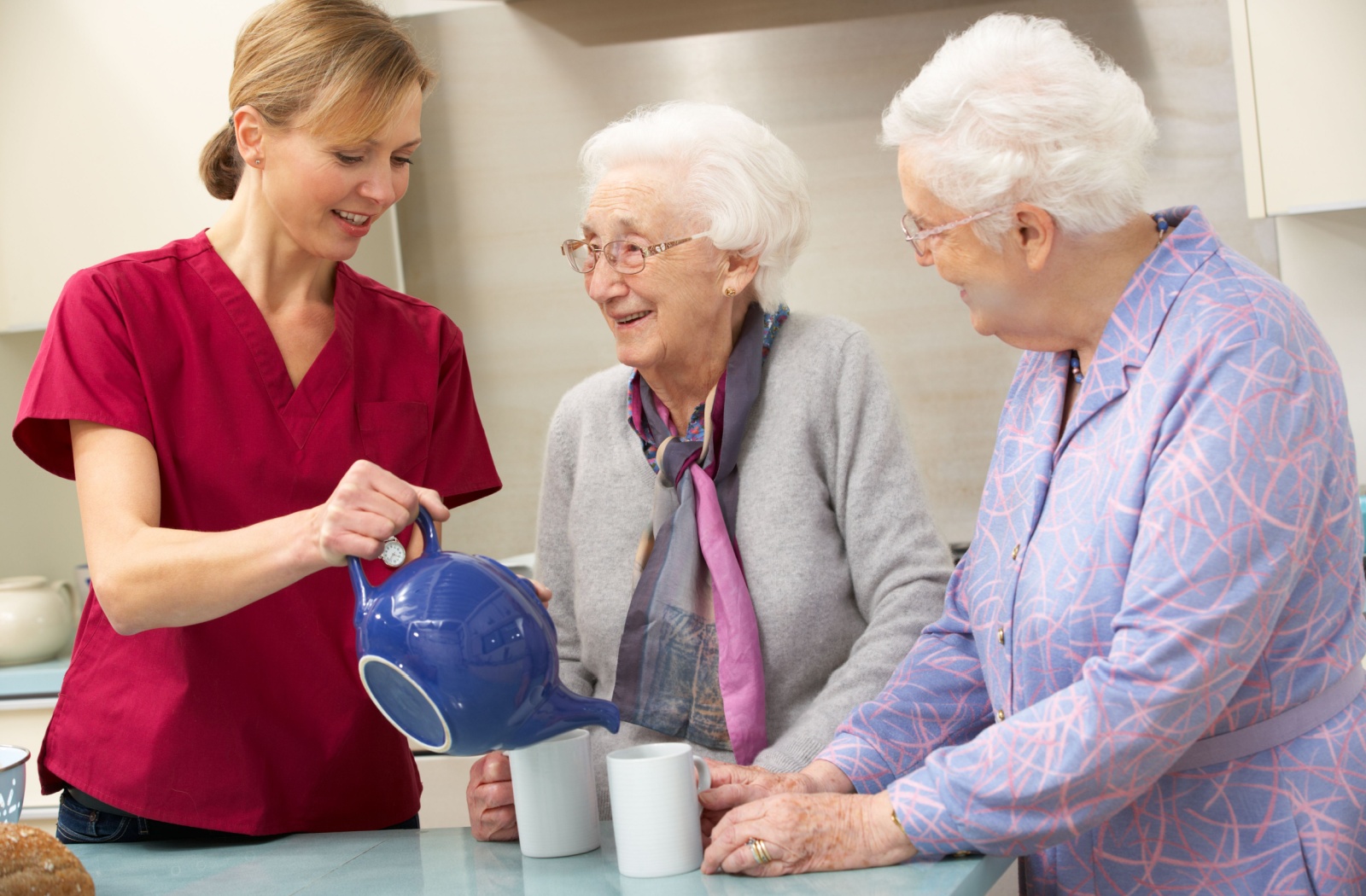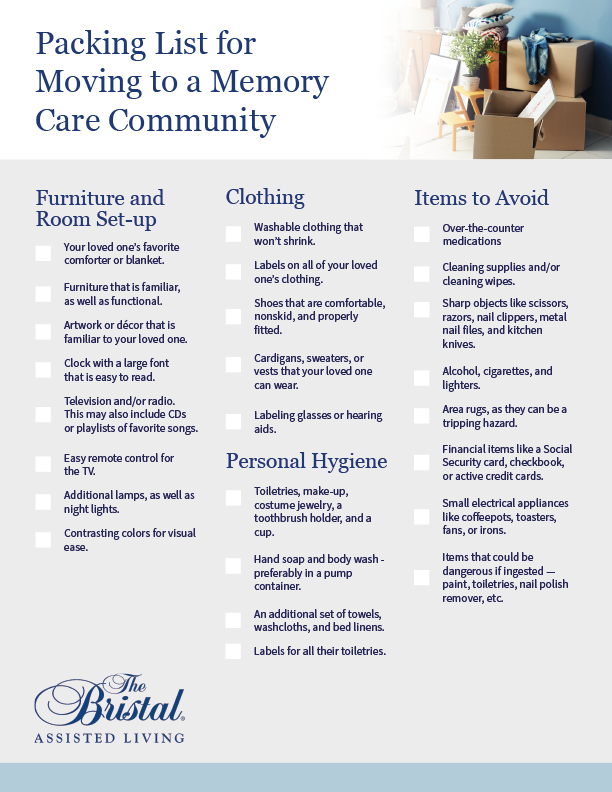Supporting Households with Specialized Alzheimers Care Charlotte Solutions
Supporting Households with Specialized Alzheimers Care Charlotte Solutions
Blog Article
Producing a Safe and Supportive Atmosphere for Alzheimer's Care
The development of a safe and supportive atmosphere for people with Alzheimer's is extremely important in enhancing their high quality of life. Checking out these diverse techniques can disclose important insights into effective caregiving strategies that may transform the day-to-day experiences of both caretakers and clients.
Understanding Alzheimer's Needs
Regularly, people with Alzheimer's condition exhibit a range of needs that require tailored methods to care. As the condition progresses, cognitive decline shows up in numerous means, influencing memory, thinking, and also the capability to carry out daily tasks. Caregivers have to identify these progressing requirements to offer ideal assistance and make certain a better of life for those affected.
One critical facet of recognizing Alzheimer's demands is acknowledging the importance of regular and experience. Individuals frequently find convenience in well established patterns, which can decrease anxiousness and complication. Caregivers should make every effort to produce organized everyday routines that incorporate purposeful activities aligned with the individual's interests and capabilities.
Furthermore, effective interaction is critical. Individuals with Alzheimer's may have a hard time to express themselves or comprehend intricate language. Caregivers must employ straightforward, clear language, usage non-verbal cues, and method energetic listening to cultivate understanding and link.
Caretakers should encourage interaction in area activities or family members events, advertising a feeling of belonging and objective. Understanding these diverse needs is important for producing a helpful treatment atmosphere.
Creating a Safe Home
Producing a safe home for people with Alzheimer's disease is important to lessening dangers and promoting self-reliance. The style of the home ought to prioritize safety while enabling for personal convenience. Initially, eliminate potential hazards such as loose carpets, sharp things, and clutter, which can result in falls or crashes. Make sure that pathways are well-lit and clear, as proper lighting minimizes disorientation and improves mobility.
Integrating flexible functions is also critical. Set up grab bars in restrooms and near staircases, and think about making use of non-slip mats in damp locations. Additionally, making use of contrasting shades for floorings and wall surfaces can aid in differentiating rooms, assisting to minimize confusion.
Knowledge is necessary for individuals with Alzheimer's. Customizing the setting with familiar items and pictures can strengthen a feeling of belonging and safety and security - Alzheimers Care Charlotte. It is additionally advantageous to have actually a marked area for day-to-day activities, such as reading or crafting, which can supply framework to their day
Lastly, applying a safe exterior space allows for risk-free expedition while getting in touch with nature. By thoughtfully designing the home environment, caregivers can substantially boost the quality of life for people living with Alzheimer's illness.
Enhancing Communication Abilities

Non-verbal communication, consisting of faces, gestures, and touch, plays a crucial duty in sharing empathy and understanding. Keeping eye call and a tranquil temperament can improve the comfort degree of the person, promoting a sense of security.
Moreover, it is very important to exercise active listening. This entails being completely present, revealing persistence, and allowing the individual to reveal themselves without interruption. Rep may be essential; caretakers should be prepared to take another look at subjects or questions, as people with Alzheimer's may battle with memory recall.
Furthermore, using visual help or hints, such as pictures or familiar objects, can promote recognition and involvement. Eventually, boosting communication abilities has to do with building trust and producing a setting where hop over to here individuals really feel listened to, valued, and understood, consequently enriching their high quality of life.
Urging Social Interaction
Cultivating significant social interactions can considerably boost the well-being of people with Alzheimer's condition. Engaging with others not only aids combat feelings of isolation yet also stimulates you can check here cognitive function and psychological health. Structured social activities, such as group arts, crafts and games, or songs treatment, develop opportunities for locals to connect with peers and caregivers, which can result in improved state of mind and lowered stress and anxiety.
Developing a welcoming atmosphere that urges socializing is necessary. This can be achieved by organizing common areas that assist in communication, such as comfy seating areas or task areas. In addition, including acquainted and culturally relevant activities can stimulate memories and motivate involvement, enabling people with Alzheimer's to feel more connected to their past experiences.
Moreover, caregivers must be educated to identify and advertise social interaction among locals. Simple gestures, such as initiating conversation or assisting in little group discussions, can aid individuals feel valued and included. Consistently set up social occasions must be constant yet versatile, accommodating differing degrees of capability and interest. By focusing on social communication, we can dramatically improve the lives of those dealing with more information Alzheimer's, fostering a feeling of neighborhood and belonging.
Supporting Caregiver Well-being

To support caretakers, companies should supply routine training and instructional sources to enhance their understanding of Alzheimer's condition and caregiving techniques. Offering access to break treatment solutions permits caretakers to take necessary breaks, minimizing anxiety and exhaustion - Alzheimers Care Charlotte. In addition, fostering a neighborhood with assistance teams can promote psychological sharing and the exchange of sensible advice among caregivers, producing a network of shared support
Mental health resources, such as counseling services, can also be important in dealing with the emotional toll caregiving can take. By prioritizing caregiver well-being, we create a more lasting caregiving setting that not just profits the caregivers themselves but also boosts the overall quality of treatment obtained by people with Alzheimer's. Eventually, sustaining caregivers is a necessary element in fostering a reliable and caring treatment setting.
Conclusion
Finally, the production of a secure and helpful setting for people with Alzheimer's is necessary to enhancing their quality of life. By focusing on security through thoughtful style, promoting psychological wellness with acquainted aspects, and promoting involvement through structured regimens, caregivers can substantially impact the total experience of those impacted by this condition. Supporting caretaker well-being is critical, as it eventually adds to a more compassionate and effective treatment setting.
Repeating might be required; caretakers should be prepared to review subjects or questions, as people with Alzheimer's may battle with memory recall.

Report this page